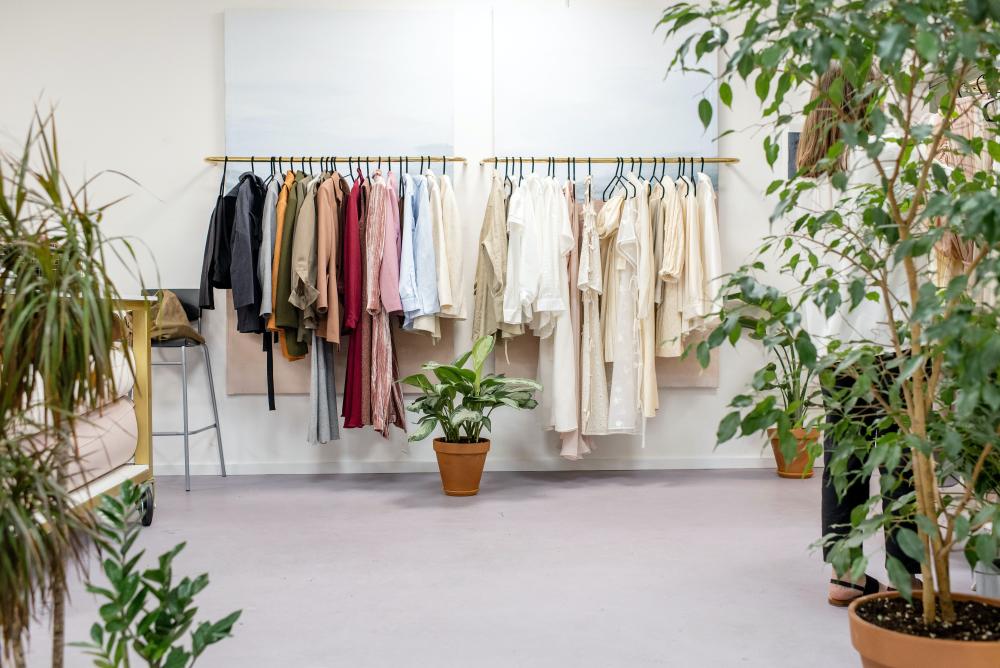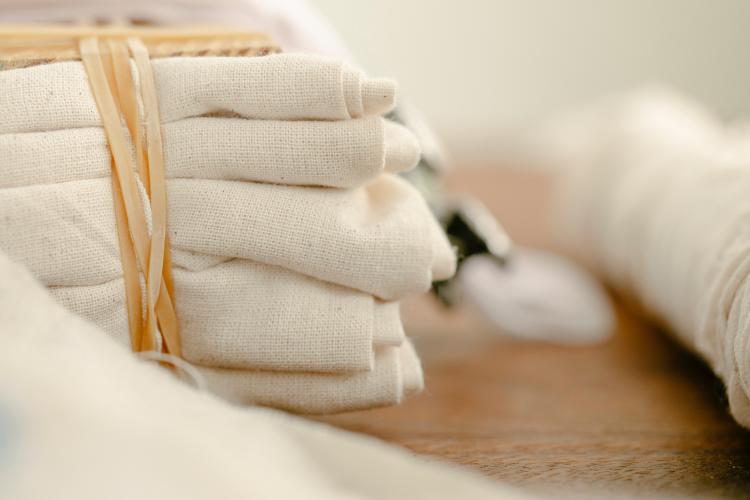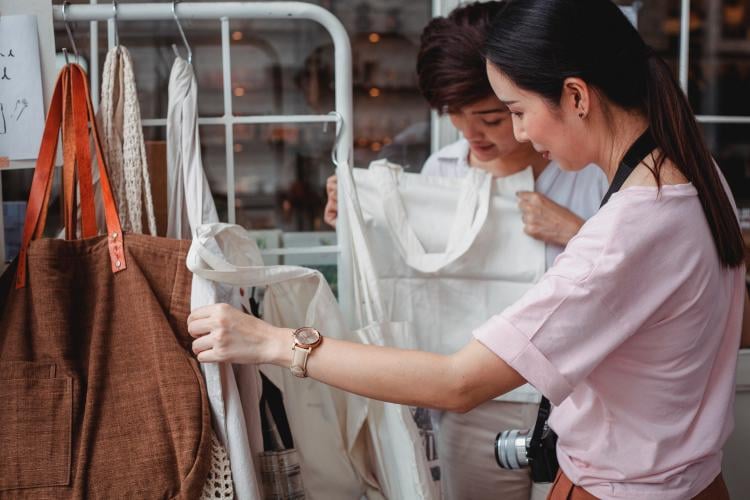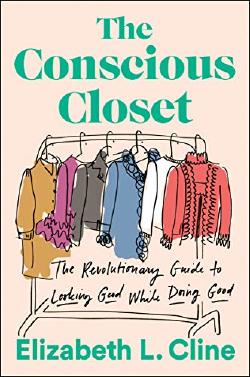
We are all aware that purchasing and wearing ethical clothing is the right thing to do. But, more often than not, being ethical comes at a high cost. Lucky for us, as demand grows, there are more possibilities than ever in the affordable ethical apparel spectrum that also have fair trade certification. Let's learn about Fair Trade, what is it? And learn how can we fight fast fashion?
Conscious shoppers are well aware of the difficulties involved in choosing ethical products during their weekly supermarket buy, but one area of purchasing that is often overlooked is apparel. Although buying secondhand clothing from local thrift stores or hosting clothes swaps is the most sustainable option, there are times when you need to buy new items, and supporting ethical goods sends a positive message to both ethical firms and brands that use sweatshop labor.

This is why we need to learn about Fair Trade because it is the best option when it comes to buying new items. It is not only fair for the environment but also for the people and labors living on it.
To begin with, Fair trade is a certification system that tries to verify that a set of standards are satisfied in the manufacture and distribution of a product or ingredient. "Fair trade" means workers' rights, safer working conditions, and higher remuneration for farmers and workers. For customers, this means high-quality, ethically made goods.
Choosing Fair trade means joining farmers in their fight for fairness and equality in the face of some of the world's most serious issues. It entails farmers bringing about change, from investing in climate-friendly farming techniques to promoting female leaders.
Every day, Fair trade makes a small difference in the world. Simple buying decisions demonstrate to businesses and governments that you believe in fair and just trade.
Despite the fact that there is a global fair trade emblem and that the requirements are controlled, several self-made certificates have sprung up over the years. There are still lots of laborers under not so cool working conditions and whatever they manufacture is sold in the market for a higher price that does not match what the laborer gets as wages. Fortunately, there are many different associations willing to change this.
Worldwide Responsible Apparel Production, for example, was founded in 2000 as a collaboration between the American Apparel Manufacturers Association and other notable garment manufacturers. This intimate industry link has been met with mistrust, as it implies industrial bias, and the association has also been chastised for a lack of public openness. On the other side, there are a number of ethical businesses that are open about their production processes and personnel, which means they don't see the need to pay for or show the fair trade badge.
To make a little bit simpler for you and also on behalf of communication responsibly, the following is a growing list of ethical fashion manufacturers that you can rely on to make environmentally friendly clothing. Given that everyone has a different definition of affordable, the list starts with the cheapest ethical apparel and builds its way up to the somewhat more costly selections.
Pact Apparel's founders had a clear goal in mind when they launched their ethical clothing company. It was simply to make the most comfortable garments in the world without harming the environment or people. And we need to say that their goal has been achieved.
Swoon Swimwear, founded on love, embodies the American dream for its founder, Kristy Kleist. The tiny but fun collection of sustainable swimwear is locally created, ethically sourced, and of high quality to guarantee it lasts.
Mata Traders was founded by three best friends who were inspired to establish their business after visiting India and falling in love with the country's vibrant markets and textiles. Their designs are created by craftsmen in India and Nepal, providing a steady source of income for families living in some of the world's poorest communities.
The purpose of Krochet Kids is to encourage people to climb above poverty. Their lovely designs are handmade and autographed by their creators, so you may learn more about the individual who made your garments by going online.
Citizen and Darling are dedicated to increasing public awareness and support for the ever-growing problem of human trafficking and modern-day slavery. Each of their modest but attractive designs is created in accordance with their values of fair compensation and the avoidance of slave labor.
They also donate 10% of all purchases to charity that fights against human trafficking.

Boody is an Australian label with a quest to make undergarments and base layers that are simple, comfortable, and appealing while still being environmentally friendly. Because of its environmental friendliness, bamboo is used in the production of their products. This bamboo is grown in regenerated forests and consumes far less water than cotton.
Alternative Apparel is one of the most economical sustainable clothing manufacturers available. With their collection of casual and comfy clothes that anybody can wear, this US label is introducing eco-friendly clothing to the mainstream. They employ organic cotton and recycled textiles, as well as factories that follow fair labor policies.
Urban Renewal is a division of the immensely successful apparel company Urban Outfitters. This eco-friendly brand's mission is to reduce textile waste by recycling, rejuvenating, and re-purposing.
They accomplish this by re-purposing fabric leftovers to create new fashion, curating boutique vintage treasures, and re-purposing old clothes that would otherwise end up in the landfill into new trendy and one-of-a-kind pieces.
Threads for Thought, an established ethical sportswear business, has gotten it right by employing sustainable materials, ethical producers, and doing their part to support communities in need all around the world. They design the most flattering casual and sporty clothes that you'll want to wear every day!
You can learn How to incorporate Slow Fashion Items into Your Daily Outfits from our article right here.

The Conscious Closet is more than just a fashion guide. It is a call to action to turn one of the world's most polluting businesses, fashion, into a force for good. Readers will understand where and how their clothes are created before joining with a global and passionate network of fashionable fashion rebels. Elizabeth shows us in The Conscious Closet how we can begin to truly love and understand our clothes again, without losing the environment, our values, or our style in the process.
Thinking before buying unnecessary items is one of the keys for sustainability, then if you cannot skin buying, always think about how the items you are purchasing were manufactured. Search for information and learn about brands, most recognized brands are not always the most sustainable option. If you are not sure what you should be paying attention to, read our guide Sustainable Fashion 101: All You Need to Know & A Complete Guide.